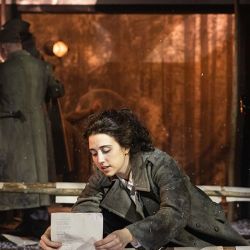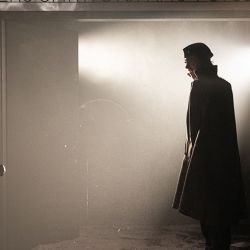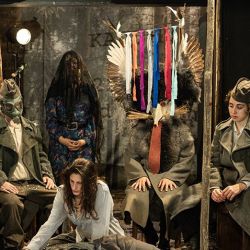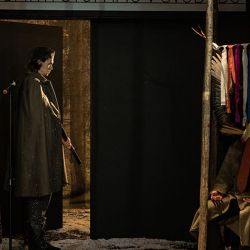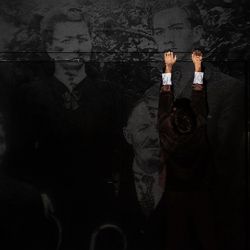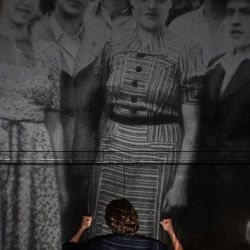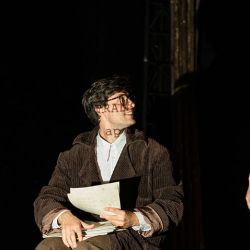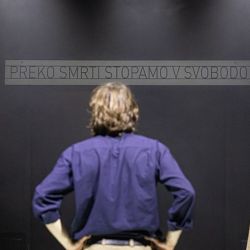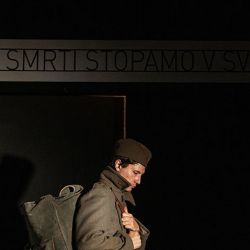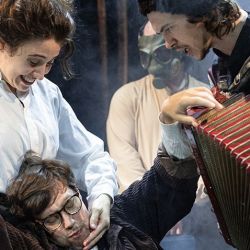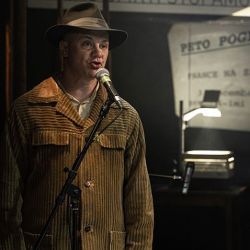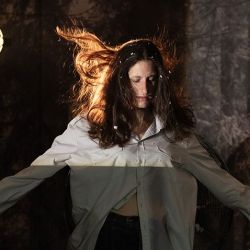Year 2023 has been proclaimed the year of the poet Karel Destovnik – Kajuh (1922-1944). It was last year that actually marked the centenary of his birth, while this year coincides with the 79th anniversary of his death. The poet, translator and national hero was born in Šoštanj and died at the Žlebnik homestead in Šentvid nad Zavodnjami. He was shot by a militiaman of Slovene nationality, France Černe, during a raid by German soldiers and militiamen. He was the only Slovenian cultural figure to be declared a national hero in July 1953.
Nowadays, Kajuh is considered possibly the greatest Slovenian Partisan poet. He did not survive the Second World war, but left us an impressive legacy, consisting mainly of poetry, as well as letters, translations, prose writings and a play, Mother.
This year – albeit a year too late – marks the Year of Kajuh. What is the reason for the delay? What is it about Kajuh that makes him so disturbing and important and part of national memory? What makes him so contentious, provocative, subversive that his centenary is celebrated with a delay? Is it just about political ideology? Is it about sustaining ideas of yesteryear? Is it about bringing the dead back to life, rekindling the conflicts of the past? Admittedly, many disputes have never been dealt with, and we seem unable to leave the dead at peace – we keep digging up them from their graves and abuse the names of the forgotten ones; but not for the sake of their names, their stories, their bodies or their ideas, but simply for the sake of disagreeing.
Is this the future that Kajuh and his comrades wished for?
Maybe the silent graves keep murmuring a different poem, a poem about a nation’s bright future, a poem that »was created during the struggle for a new world, meaning that it existed on the side of the not-yet-existent; the specific mode of existence of Partisan art can only be fathomed as a dialectic of existence and non-existence.« This voice keeps resounding nowadays, albeit for a world that does not exist. The poems by Kajuh and other Partisan poets are artefacts, leftovers, residue, bonuses that we are unable to tidy up or simply forget about. They keep hurrying through the forests, they appear as ghosts at celebrations, they echo from the mountains.
In Slovenia of today, the Partisan movement is nothing but a bone of contention, the sweet and sour recent past of the nation. This is why the creators of the production aim to explore a bygone, forever young generation, being a generation that was compelled to take radical decisions. In so doing they transformed consciously from naive youth into a voice of resistance, a propagandist, a rabid dog.
What does an artist’s voice change into in the maelstrom of war? What is the meaning of his (young) life? What can we discern when we hear the bygone dreams of the future that has already been blown up by the wind?
On generation that transformed consciously from naive youth into a voice of resistance, a propagandist, a rabid dog.
Authors of the concept Živa Bizovičar, Nik Žnidaršič
Director Živa Bizovičar
Dramaturg Nik Žnidaršič
Set designer Nika Curk
Costume designer Nina Čehovin
Composer Luka Ipavec
Lighting designer Bor Ravbar
Language consultant Živa Čebulj
Accent consultants from the Cerknica area Ljoba Jenče, Ana Ule
Prompter Simona Krošl
Cast
Jagoda
Damjan Trbovc
Lovro Zafred
Mojka Končar, as guest
Mario Dragojević, as guest
Miranda Trnjanin, as guest
Opening October 2023
Stage manager Anže Čater • Lighting master Gregor Počivalšek • Sound masters Gregor Počivalšek, Drago Radaković • Property masters Roman Grdina, Saša Kroflič • Front-of-house Rado Pungaršek • Make-up artists Marjana Sumrak, Andreja Veselak Pavlič • Wardrobe masters Suzana Pučnik, Maja Zimšek • Tailor Anita Kragelj • Seamstress Ivica Vodovnik • Head of construction Gregor Prah • Technical manager Aleksandra Štern • Assistant technical manager Rajnhold Jelen



